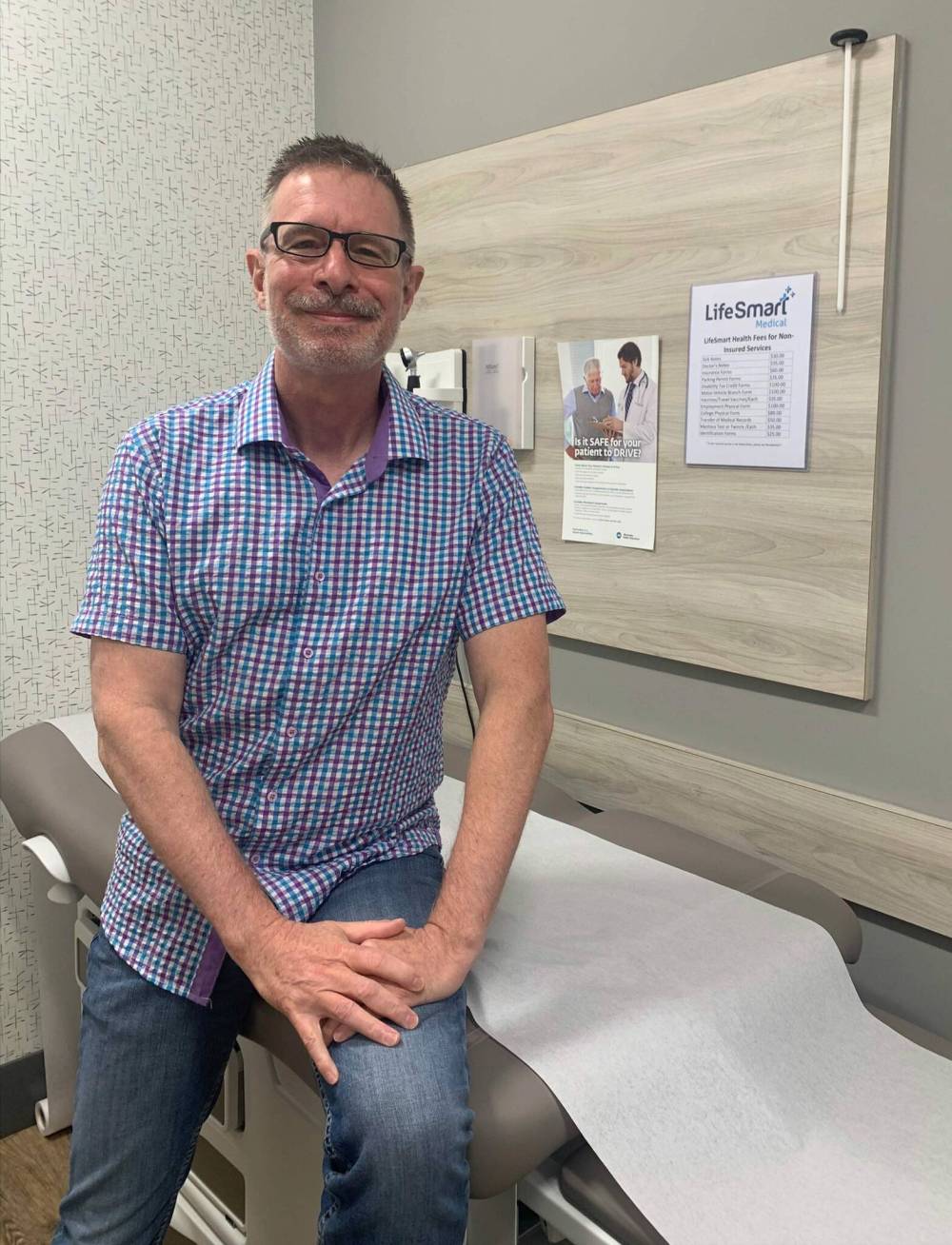Health centre identified first monkeypox case in Manitoba
Advertisement
Read this article for free:
or
Already have an account? Log in here »
To continue reading, please subscribe:
Monthly Digital Subscription
$0 for the first 4 weeks*
- Enjoy unlimited reading on winnipegfreepress.com
- Read the E-Edition, our digital replica newspaper
- Access News Break, our award-winning app
- Play interactive puzzles
*No charge for 4 weeks then price increases to the regular rate of $19.00 plus GST every four weeks. Offer available to new and qualified returning subscribers only. Cancel any time.
Monthly Digital Subscription
$4.75/week*
- Enjoy unlimited reading on winnipegfreepress.com
- Read the E-Edition, our digital replica newspaper
- Access News Break, our award-winning app
- Play interactive puzzles
*Billed as $19 plus GST every four weeks. Cancel any time.
To continue reading, please subscribe:
Add Free Press access to your Brandon Sun subscription for only an additional
$1 for the first 4 weeks*
*Your next subscription payment will increase by $1.00 and you will be charged $16.99 plus GST for four weeks. After four weeks, your payment will increase to $23.99 plus GST every four weeks.
Read unlimited articles for free today:
or
Already have an account? Log in here »
Hey there, time traveller!
This article was published 25/08/2022 (1201 days ago), so information in it may no longer be current.
CIERRA BETTENS / WINNIPEG FREE PRESS
As they man the front lines of the monkeypox-prevention campaign, a group of compassionate medical volunteers has been vaccinating, educating and destigmatizing the virus for patients who walk through their doors.
Our Own Health Centre gave the Free Press an inside look into the clinic Wednesday.
Dr. Bryan Magwood, executive director of the centre, had just finished a day shift vaccinating people against monkeypox before sitting down for an interview.
About a week ago, a volunteer doctor at the clinic detected the first case of monkeypox in Manitoba. Magwood said the clinic saw another individual who they suspect might have monkeypox but is awaiting official confirmation from the province.
“We were the first to see the first monkeypox case in the city, and until it’s confirmed, probably the second case,” Magwood said.
As of Tuesday, 436 doses of the monkeypox vaccine had been administered. Of those doses, Our Own Health Centre administered 233 (and counting), Magwood said.
“I’m very proud of the response of Our Own Health Centre. We’ve given well over half of the vaccine doses ourselves with just a small clinic,” Magwood said.
In an email, a spokesperson from the Manitoba government said “Manitoba Public Health has secured enough vaccine to meet the anticipated demand while maintaining adequate supply to provide post-exposure prophylaxis should the need arise. The eligibility criteria, as well as the needed supply, will be continually reassessed.”
CIERRA BETTENS / WINNIPEG FREE PRESS 
As a clinical pharmacist at Our Own Health Centre, Roger Tam’s job involves educating patients about monkeypox.
“I chat with them to make sure they have all of the facts corrected and up to date,” Tam said. “It’s very good to empower people to be able to get the actual, correct information.”
Common questions Tam receives include whether patients can get their COVID-19 booster around the same time as their monkeypox vaccine and what symptoms to look out for.
While the clinic has been working to educate and vaccinate high-risk individuals, Tam still fears stigmatization about the disease is taking hold. He believes public health officials and media have a key role to play in ensuring the facts are reported accurately while maintaining that anyone can contract the virus.
“They still indicate that 95 per cent of people affected are men who have sex with men, or gay men, which definitely is the case statistically,” Tam said. “You should report the right statistics, but it should also be followed up that other populations can also be at risk of it, and that stigmatization can be really challenging.”
Tam shared that the founder of Our Own Health Centre, Dr. Dick Smith, practised medicine during the AIDS epidemic and fought hard against stigmatization. Now challenged with the task of monkeypox, the clinic operates with the same goal: to educate those at risk and combat stigma.
“He was one of the forefathers of the AIDS pandemic and he said he did not want to have to during his lifetime, to ensure that a stigmatized disease not be treated or prevented,” Tam said.
While vaccination is open to individuals who are classified as high-risk, Tam hopes the province will expand its capacity soon.
Manitoba Health states individuals must meet one or more of the following criteria to be eligible to receive Imvamune, the monkeypox vaccine:
• Have received a diagnosis of chlamydia, gonorrhea, and/or syphilis in the past two months
• Have had two or more sexual partners in the last 21 days
• Have attended locations for sexual contact (e.g. bath houses or sex clubs) or plan to
• Have had anonymous sex in the past 21 days (i.e. using apps, online sites, formal/informal gatherings) or plan to
• Engage in sex work or plan to, either as a worker or a client
cierra.bettens@freepress.mb.ca





